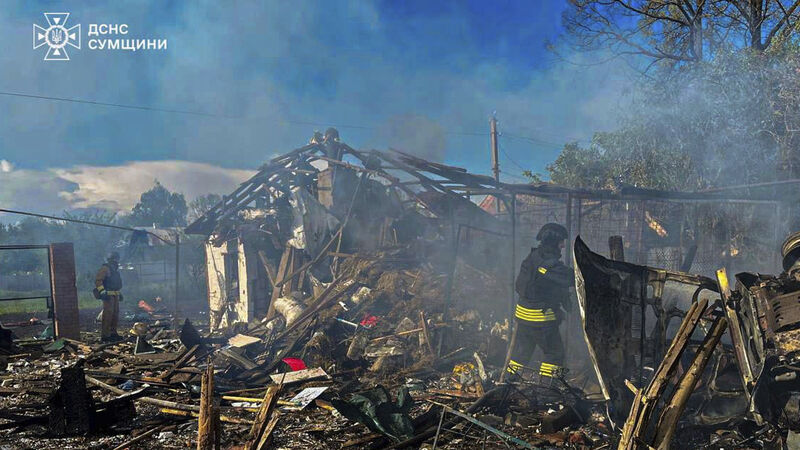Irish Examiner view: Putin's absence puts a question mark over Ukraine peace talks

Firefighters tackle one of the blazes in the village of Bilopillya, Sumy, following a Russian air raid on Wednesday. Picture: Ukrainian Emergency Services/AP
Last weekend, Russian president Vladimir Putin was the one who suggested direct talks with Ukraine in Istanbul — raising hopes of meaningful discussions which might bring an end to a war that has claimed thousands of lives.













